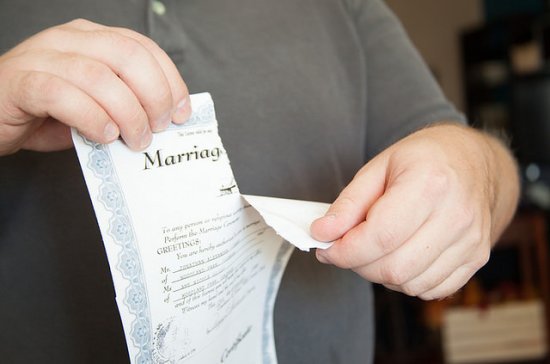
And if you're already struggling, divorce can be what breaks you financially – unless you plan for the split and do this planning together. Here are six top divorce money mistakes and how to avoid them.
1. Assuming your finances are what your spouse says they are
If your spouse has always handled the money, you may have no clue what's going on with your finances. In some cases we see, when marriages began to unravel, spouses may stop communicating about money, may start spending more and/or differently. This can result in higher credit card balances, diminished savings and unpaid bills. You must have an honest conversation about what you owe and what assets you have. You need to see it in black and white so no one can hide anything. This is the best way to move forward so you can both get off to a fresh start in life, love and financially.
2. Throwing up your hands and giving up anything to get away
Another big mistake that one spouse can make is to say that the other can have whatever they want. Some do this out of a misguided sense of generosity, or out of guilt if they were the one in the wrong or because they just want the arguments to end and that's the fastest way to get the divorce done. This isn't fair and can lead to more problems in the long run, particularly if there are kids involved so that you'll have to keep seeing each other and any resentments will spill over. Instead, take the time to work out an honest split of your debt and assets rather than just caving in to emotions.
3. Letting the lawyers get most of your money
Divorce lawyers are some of the costliest attorneys working and the more you have to involve them in your split, the more it will cost you. That's money that is better off in your hands. By sitting down and working everything out together ahead of time, you can actually drastically diminish your legal expenses. With nothing to argue over, you can get an attorney to do your paperwork for a few hundred dollars and be done. A no-fault divorce with all the money issues and custody worked out ahead of time can even be done without an attorney.
4. Adjust your lifestyle prior to separating
Another thing to consider is that your lifestyle will change with a split. Maintaining two households rather than one will cost you 25-50% more. It's best to be realistic and do some budgeting to figure out which of you can afford to keep the house (if you have one), how much rent you can afford on your post-divorce budget and to set realistic expectations. Try not to jump into any new spending until you adjust to your new financial position, increased expenses and other costs of being single.
5. Don't spoil the kids or compete over money
Most parents that are divorcing feel a tremendous amount of guilt when it comes to their kids. If the divorce is messy and acrimonious, no doubt your kids will not come out of it unscathed. But if you and your soon-to-be-ex can be as amicable as possible during and after the split, your kids should be minimally impacted. One of the things that guilt-ridden parents often do is to overspend to compete with the other parent. This is bad for your kids and your wallet.
6. File bankruptcy before you split – if your finances are really bad
If you and your spouse are deep in debt now, the divorce will only make things worse. If, like most married couples, you have joint debts you're both on the hook for that neither of you can afford, addressing the delinquent debt prior to the divorce is wise – bankruptcy may be a fit solution for you. Maxed out credit cards you can't pay, medical bills that are overdue and other unsecured debt can all be cleared out with a Chapter 7 bankruptcy. If your mortgage is delinquent, a Chapter 13 may be preferable to try and salvage the property. The best approach will depend on how far behind you are on your secured debts, how much you're each earning and other circumstances.
